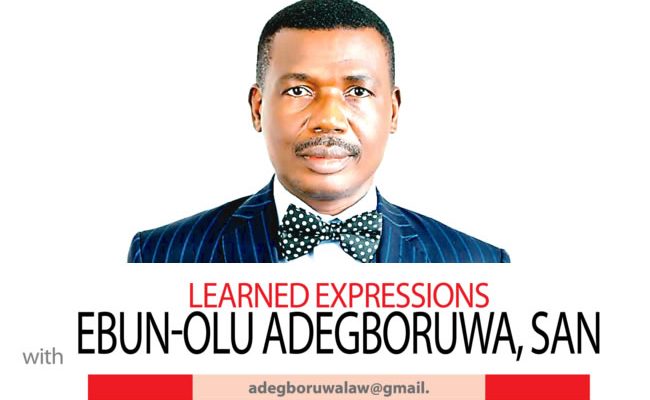Nigeria gained independence from Britain in 1960, after several years of colonial rule. Expectedly, Nigeria adopted the parliamentary system of government being the one prevailing in Britain and many other commonwealth countries. The parliamentary system of government is one in which the party or a coalition of parties with the greatest representation in the parliament forms the government, its leader becoming the Prime Minister. In this regime, executive powers are exercised by members of the parliament appointed by the prime minister to the cabinet. The party or parties in the minority serve in the opposition to the majority and have the duty to challenge the programmes and policies of the government regularly. This system of government is mostly regulated by conventions rather than statutes. The prime minister may be removed from power whenever he loses the confidence of a majority of the ruling party or of the parliament. One of the major features of the parliamentary system is individual and collective responsibility, which ensures the accountability of the government to the legislature and thus, the populace.
The collective responsibility of ministers to the parliament takes different forms. First and foremost, it signifies that the government remains in office only so long as it retains the confidence of the parliament and that all ministers stand or fall together with that government. Ministers must support government policies, but they must also resign or seek the dissolution of the government if defeated in the parliament on a matter of confidence (for instance, a vote on the budget). Collective responsibility implies that ministers are bound by the decisions of the cabinet, even when they had no part in their discussion or decision. Second, all members of the government speak in concert in the parliament, unless the prime minister relieves them of that duty. This can happen when the government has no stated policy on an issue and allows a free vote to take place in the parliament or when the prime minister allows a member of his or her government to differ publicly from a policy. The principle of ministerial responsibility ensures that the government acts as one entity and that this entity is answerable and accountable to the parliament. This was well captured in section 83 of the 1960 Constitution which states that “the cabinet shall be collectively responsible for any advice given to the Governor-General by or under the general authority of any minister of the government of the Federation in the execution of his office.”
During the first republic, a parliamentary system of government was in operation under the 1960 and 1963 Constitutions. This lasted till January 1966 following the military intervention in the government of Nigeria. A constituent assembly was put together towards the exit of military rule in 1978, leading to the draft 1979 Constitution which established the presidential system of government for the second republic. It was the first time Nigeria was experimenting with the presidential system of government comprising the executive and the legislature as separate and autonomous bodies. Although the President wields the same powers as the prime minister in the parliamentary system, he has no control over and he is not part of parliament. In the presidential system, the country was divided into constituencies and senatorial districts, which produced the parliamentarians whilst the President was elected by the people through direct ballot. And this has been one of the major reasons against the presidential system as it is said to be over bloated and too expensive to sustain.

Presently, and even with the separation from the executive, parliamentarians in Nigeria have no mind of their own other than to do the bidding of the executive. Requests from the executive to the parliament are not properly scrutinized before blanket approval is granted, candidates nominated for confirmation of the parliament scale through parliamentary screening as a matter of course and the legislature is more of an extension of the executive. What would then happen were the prime minister to be a member of parliament in Nigeria together with his cabinet members? It will only be a matter of garbage in garbage out and the people will be the worse for it. In the other jurisdictions where parliamentary democracy is practiced, the prime minister labours to convince parliamentarians on certain policy issues and it does not take time for a vote of no confidence to be passed in deserving cases. That can never happen in Nigeria, where the parliament is busy padding the budget to take care of the pecuniary interests of its members. In fact, the parliament would most likely not sit on most occasions, preferring rather to announce wild approvals for executive policies without debate.
Ideally, the parliament should be a check on the executive, performing oversight functions over government ministries, departments and agencies. The parliament should ensure the implementation of the appropriation law to ensure compliance and to avoid corruption and waste. Where the parliament is up and doing in the discharge of its constitutional duties, the executive is tamed and assisted to perform maximally, under the doctrine of checks and balances. In the case where the parliament is truly independent and autonomous, dictatorial policies and actions are curtailed, corruption is easily exposed and tackled and the people will feel the positive impact of the government. I honestly do not think that Nigeria has advanced to such a state where the leader of the ruling party (prime minister) is made to sit together in the same chamber with parliamentarians and his ministers. The influence will be overbearing and overwhelming to the great disadvantage of the people. If part of the agitation for a return to the parliamentary system of government is to save cost, we then need to choose between money and progress. We have had enough of the presidential system to gather the experience needed to stabilize that option, whereas we have only had one parliamentary experience. We can build on these experiences to define our own brand of democracy than to go back to the parliamentary system. In any case, we will still have the same Independent National Electoral Commission, we will still have the same Election Tribunals and indeed the same Nigeria Police Force. The challenge to me is to build on our institutions to insulate them from political interference and to have them manned by persons who are strong enough to stave off such unwarranted incursions. The other point is that the parliamentary system of government is more like a unitary affair which cannot suit the case of Nigeria with all its multi ethnic and multi religious entities. Let us retain the presidential and improve on it.







